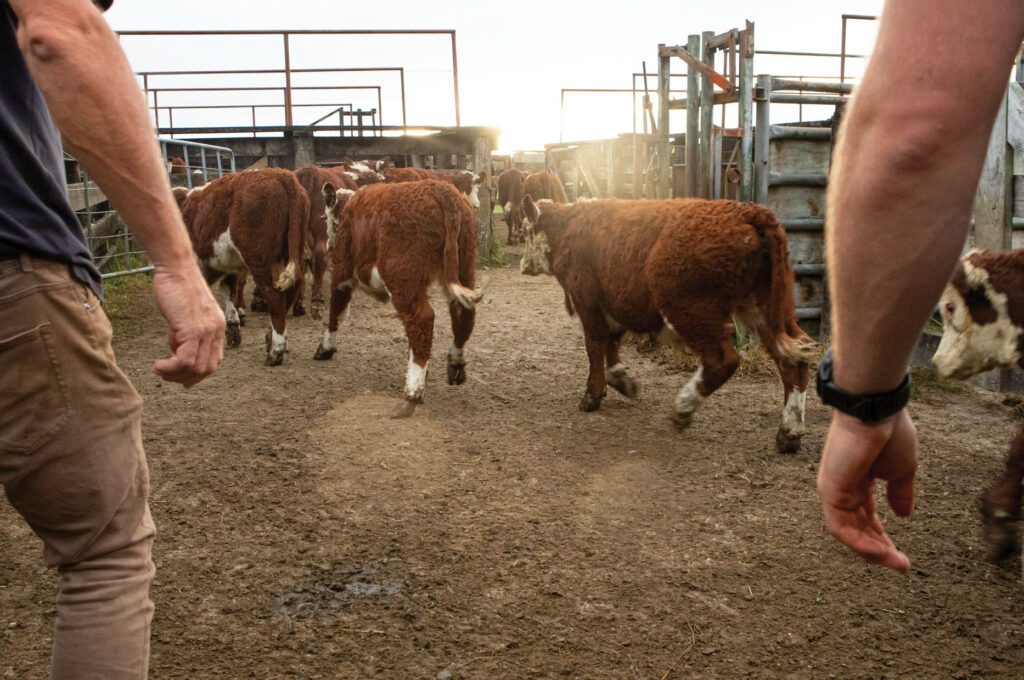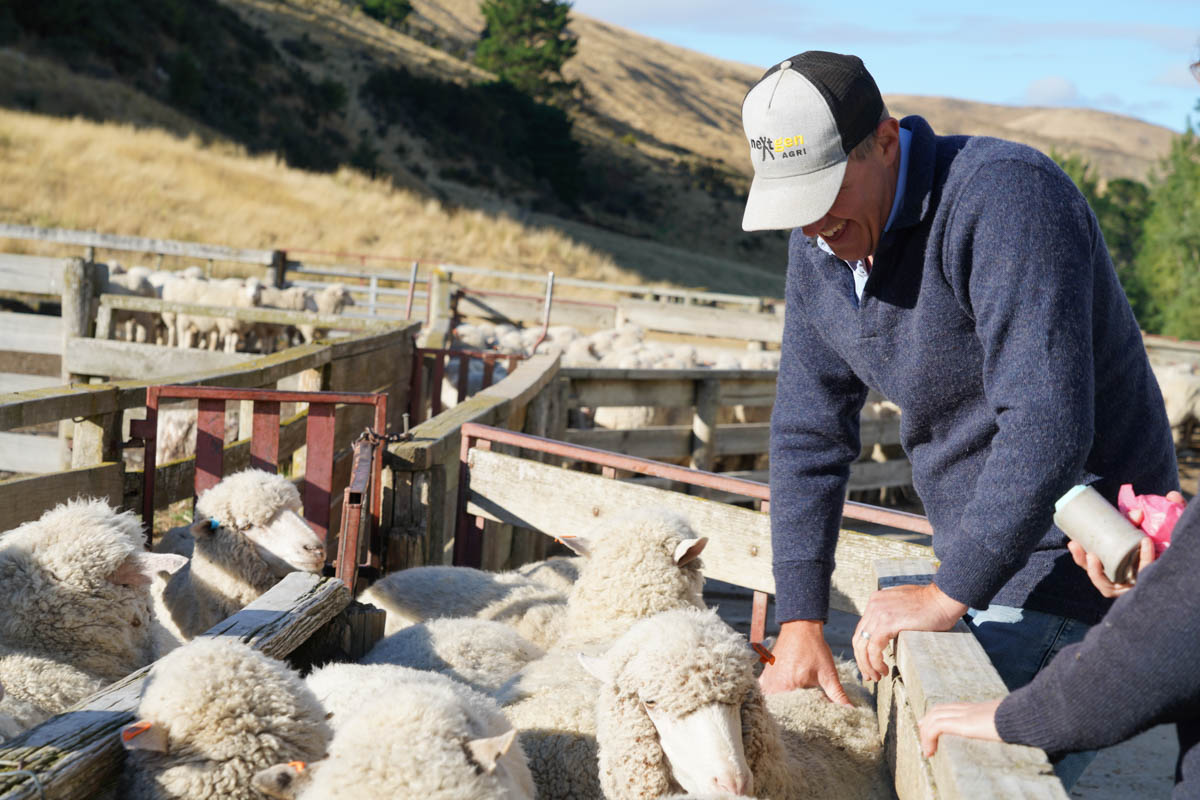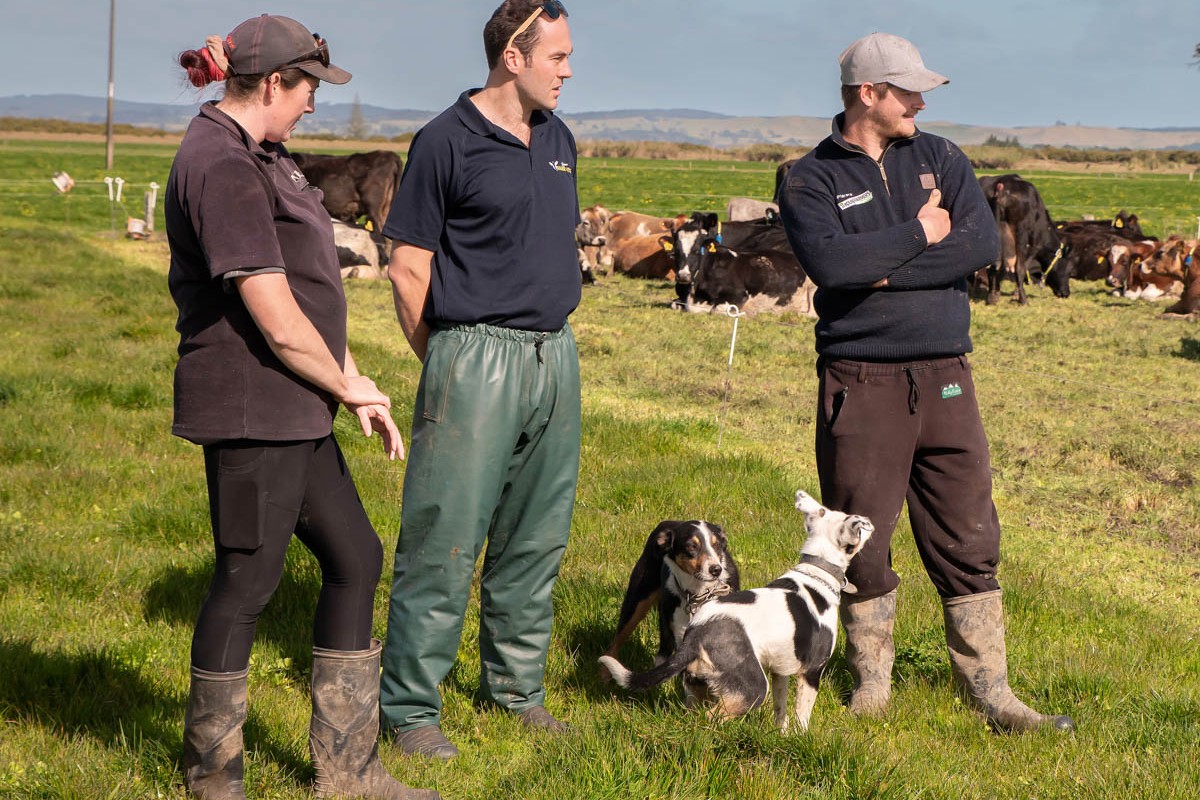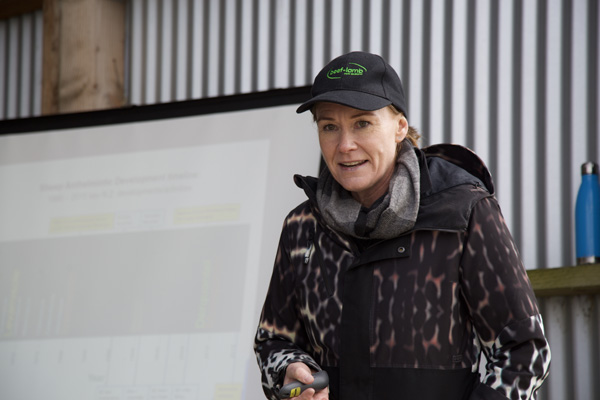Haast muster requires resilience
Raising beef cattle on the river flats of South Westland provides distinctive challenges for local farmers. Lynda Gray reports. Photos by Vicky O’Connor.
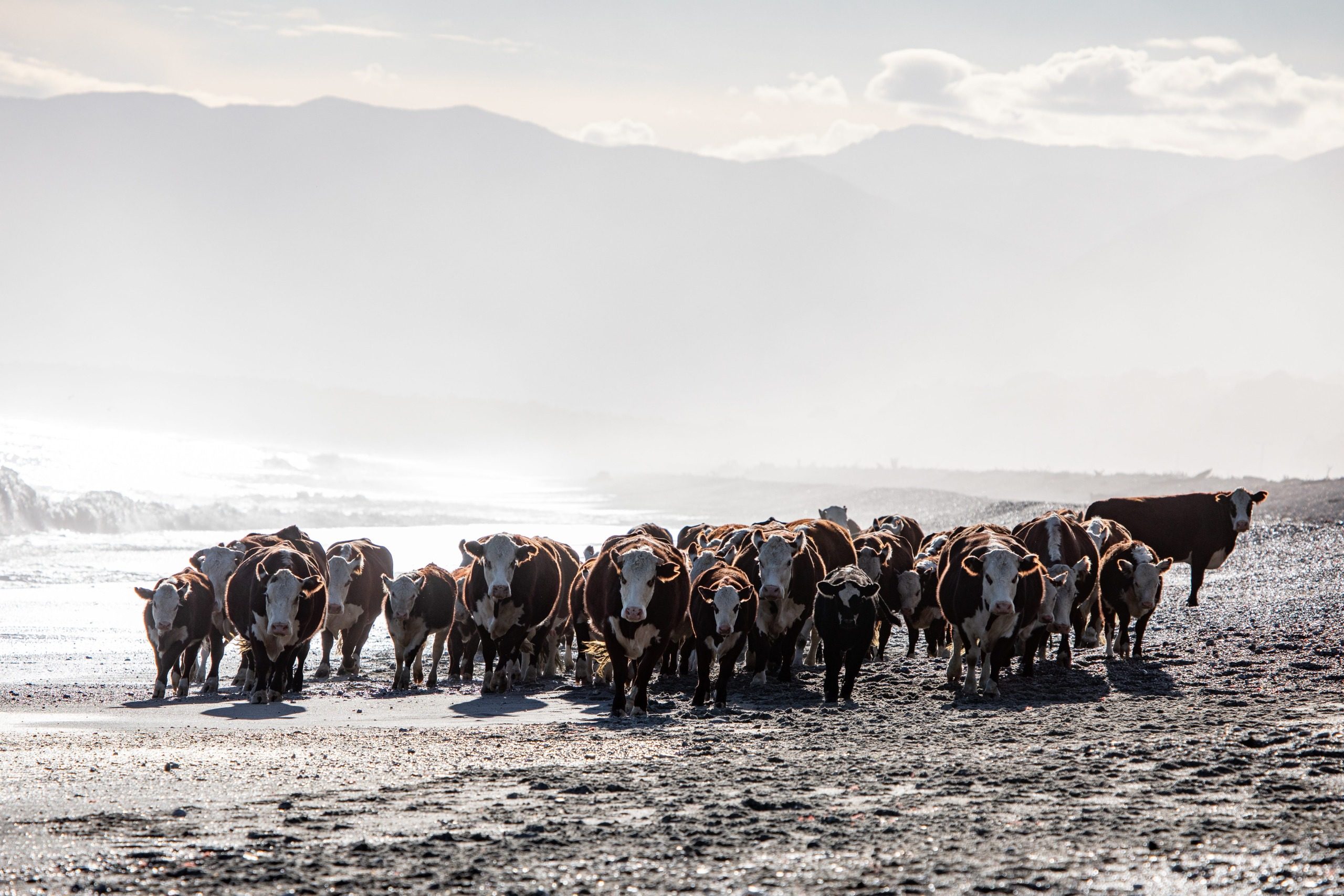
Raising beef cattle on the river flats of South Westland provides distinctive challenges for local farmers. Lynda Gray reports. Photos by Vicky O’Connor.
Getting the calves from their remote bush and river valley home blocks to market is the real story of the annual Haast calf sale at the Turnbull saleyards.
For the Landreth family this year’s weaning muster story was short and sweet. It took only two weeks whereas it has sometimes dragged out over a month due to rain, which in South Westland ranges from 4.6-8.2 metres a year.
“We face a lot of challenges with the rivers,” Courtney Landreth says.
It’s not unusual to get 700mm of rain in 48 hours during what Courtney describes as ‘flooding weather’, it creates huge problems and 2019 was one of those years. The weaning muster was literally a washout and the Haast sale was postponed.
Tides are also a problem because access to one of the Landreth’s blocks is over a tidal river and along a beach, creating a small window for access. But this year the tides and weather were all in alignment.
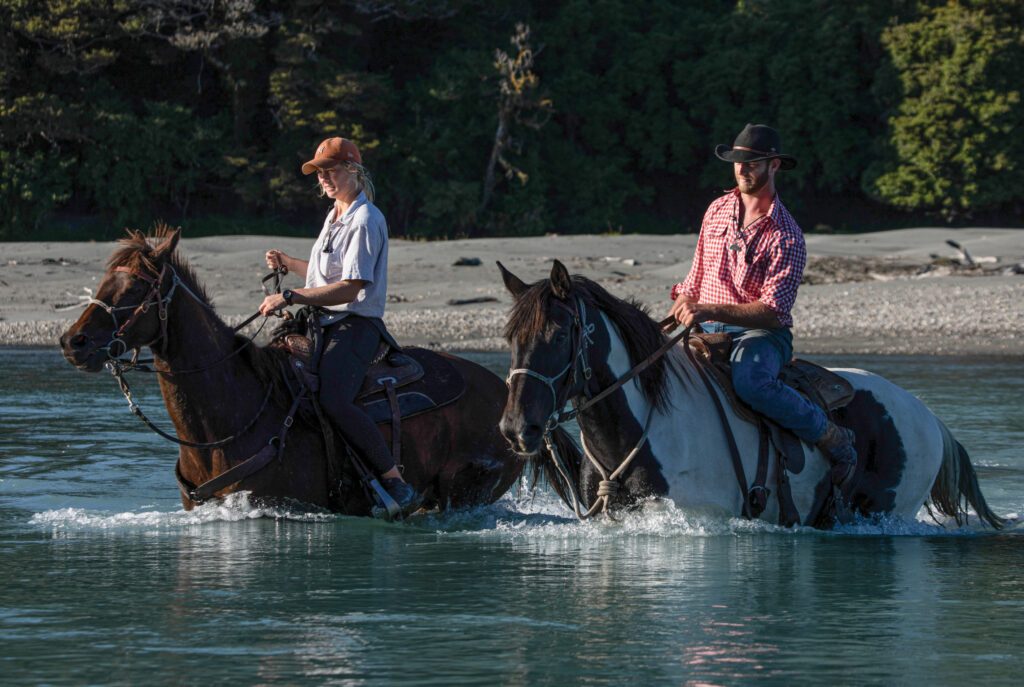
“If anything, the rivers were almost too low which meant there could have been a problem getting jet boats up the rivers… luckily, we got a top up of rain.”
The Landreths have farmed in South Westland since 1997. Courtney’s parents Kim and Hayley bought the farm in two halves over two years from the Eggling family, a name synonymous within the region.
The original intention of Kim, a Wanaka contractor, was to farm trees rather than cattle. However, Kerry Eggling persuaded him otherwise by inviting Kim along on a cattle muster before selling him the second half of the farm. It gave Kim a true appreciation for the extraordinary farming way of life which now comprises, for the Landreths, 250 head of cattle farmed in four river valley blocks.
Initially a farm manager was employed but that arrangement changed when Kim and Courtney went into a farming partnership six years ago. Courtney with the help of her partner, Simon, oversees cattle management on three of the four blocks. The Waiatoto block is the most remote, it’s a 27-kilometre drive from Haast and access to the top of the valley is by jet boat and then horseback for the final stretch.
Another block is along the Jackson River valley; and the third is accessed by beach at the lower end of the Arawhata valley.
The landholding arrangements in South Westland are hard to understand and explain to outsiders, Courtney says.
“Our leasehold stewardship arrangements are quite disjointed.”
The blocks are all connected by a river or a beach, but there is a lot of distance between them.
It makes the organisation of a weaning muster sound difficult but generally – weather permitting – it’s relatively straightforward.
Up to 10 family and friends get the call-up to help out with the mustering, cooking and general support. Courtney oversees that everything goes according to plan but says everyone knows the drill and works as a team.
Mustering starts at first light to beat the heat of the day, when the cows and calves are out from the cover of bush grazing along the river flats.
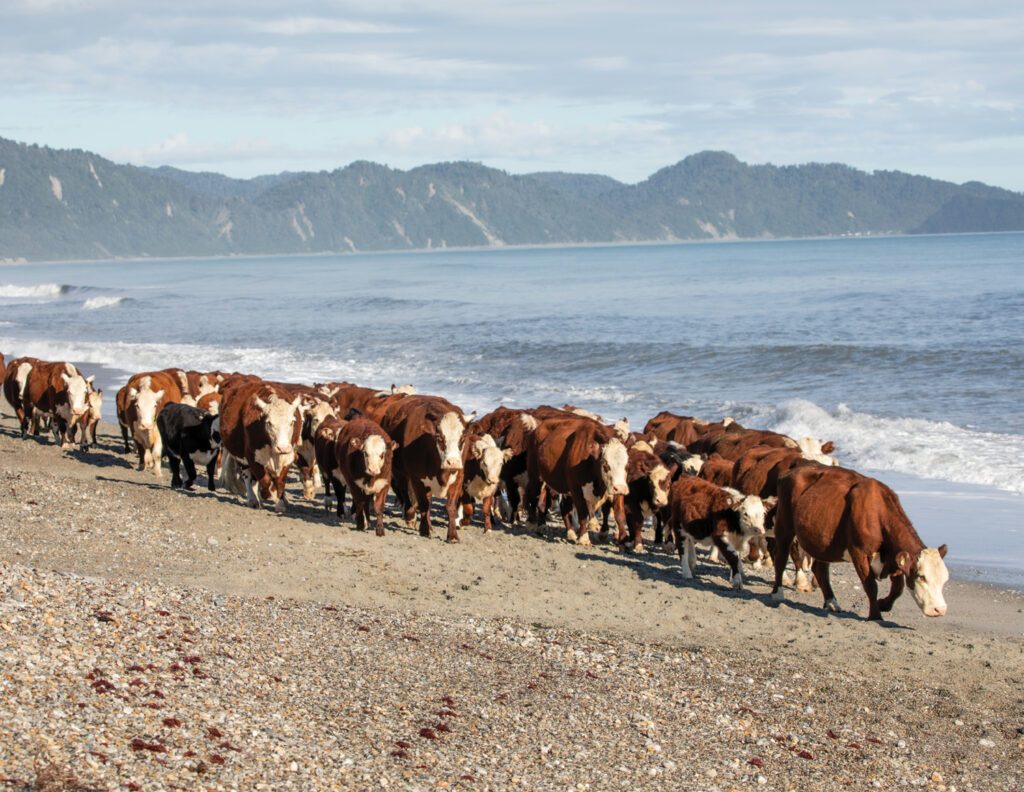
Once the mustering is done, there is yard work. The culls and dry cows are drafted off and the replacement heifers selected, and the rest of the breeding herd are put out into the holding paddocks to wean.
The Hereford-Angus calves weaned particularly well this year, which Courtney attributes to lots of sun and good feed. At the sale all the 70 steers and 50 heifers sold.
“They looked amazing”.
With the business end of selling the calves over, the cattle work continues with the job of returning the breeding herd back to their blocks.
“There’s just as much work to do after the sale but we like to give the cows a break for a couple of weeks before taking them back.”
For the record: Prices were up at this year’s Haast calf sale, reflecting the strong beef market and the generally good condition of the calves on offer, Craig Knight PGGWrightson said.
There was a good group of buyers from as far afield as the North Island for the 900 beef breed calves on offer.
“It was good to see the return of North Canterbury buyers. Generally, those who were there were reflective of where the feed is.”
The top price of $1000/head was shared by Maurice and Kathleen Nolan, Cascade Station, for a line of 22 Angus steers, and J B Cowan Marks Station for 20 Angus steers.
Medium calves sold for $750-$850 and the lighter ones, $500-$650. Top heifers sold for $750.
